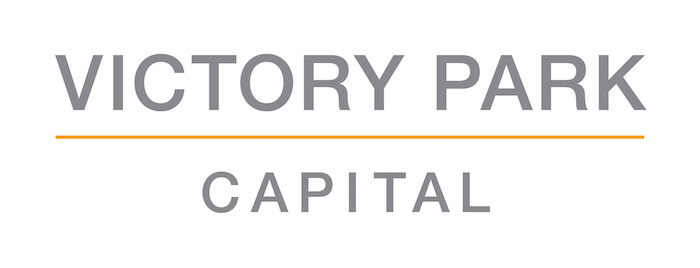Rockpoint Legal Funding today released The 2025 Lawsuit-Duration Index, a first-of-its-kind analysis that ranks U.S. states by the average time it takes a routine civil lawsuit to reach resolution. Drawing on thousands of line-items from trial-court dashboards, annual judiciary reports, and the National Center for State Courts (NCSC) case-flow datasets, the study shines a light on the calendar realities behind America’s crowded dockets.
States Where Civil Cases Last the Longest
- New York — ≈ 30 months
Why so long? Dense commercial caseloads, heavy discovery, and a “deferred note-of-issue” system that gives parties up to a year to certify readiness can stretch the calendar. Even though New York’s Differentiated Case Management (DCM) rule sets a target of 15 months from filing to judgment, backlogs in the Supreme Court’s civil terms routinely push cases to double that figure. - California — ≈ 24 months
Unlimited-jurisdiction civil matters must, by statewide standard, wrap up within two years, yet fiscal-year dashboards show that fewer than 80 percent of cases hit the 24-month mark, with the remainder spilling into a third year. Factors include large jury pools, complex consumer statutes, and pandemic-era continuances that have not fully cleared. - Florida — ≈ 20 months
Circuit-court dashboards reveal that barely half of ordinary negligence and contract suits close inside 18 months. Although the Supreme Court adopted aggressive case-management rules in 2023, trial-level clearance rates are still catching up, and hurricane-related insurance litigation continues to clog calendars. - Illinois — ≈ 18 months
Cook County alone processes more than 250 000 civil filings a year. Medical-malpractice caps were struck down a decade ago, and lengthy expert-witness phases keep many cases open well past the 1½-year horizon set by the state’s Time-Standards order. Tort hotspots in Madison and St. Clair Counties skew the statewide mean upward. (Source: Illinois Courts Statistical Summary, 2024). - Texas — ≈ 14 months
A statewide “Age of Cases Disposed” audit for fiscal year 2023 shows that 58 percent of district-court civil cases are resolved inside a year; another 12 percent finish by 18 months; the remainder stretch longer, producing a weighted average of roughly 430 days. Urban districts with multicounty venues (Harris, Dallas, Bexar) post the slowest numbers
National context: Across 19 benchmark jurisdictions surveyed by the NCSC, the mean time to disposition for civil matters was 43 weeks—just under eleven months—highlighting how outlier states pull the national average upward.
Why Do Timelines Vary So Widely?
- Caseload Mix – States dominated by high-stakes personal-injury, medical-malpractice, or complex commercial cases run longer discovery schedules than states whose dockets lean toward simpler contract or small-claims matters.
- Procedural Rules – Broad discovery allowances (New York CPLR, California CCP) and generous continuance policies add months. Fast-track “rocket-docket” rules, used in parts of Texas and Virginia, compress schedules.
- Judicial Resources – Trial-level judge-to-population ratios range from 3.9 per 100 000 residents in California to 2.6 in Texas; shortages translate directly into fuller calendars and later trial dates.
- Backlog Hangover – Pandemic pauses left hundreds of thousands of jury-demand cases unresolved; courts that pivoted to virtual hearings (Florida, Texas) cleared inventory faster than states that waited for in-person sessions.
- Local Legal Culture – In some venues, strategic delay is a negotiation tactic. High defense-side insurance penetration can encourage “wait it out” settlement strategies, particularly in auto-injury suits.
Economic and Human Costs
- Direct Expense – The U.S. tort system cost $443 billion in 2022—about 2.1 percent of GDP—according to the U.S. Chamber Institute for Legal Reform. Longer case cycles increase those costs by boosting attorney hours, expert-witness fees, and carrying charges.
- Business Impact – Protracted litigation discourages expansion in plaintiff-friendly states and inflates liability-insurance premiums, costs ultimately passed to consumers.
- Personal Hardship – Plaintiffs waiting years for compensation often face medical bills, lost wages, or repair costs they cannot defer. Delays disproportionately harm low-income claimants who lack emergency savings.
How Legal Funding Fits In
“Justice delayed shouldn’t be justice denied,” said Maz Ghorban, President of Rockpoint Legal Funding. “Our non-recourse advances give injured people the breathing room to see their cases through rather than settling early for pennies on the dollar.”
Because Rockpoint is only repaid if a case resolves favorably, the company’s interests are aligned with plaintiffs pursuing full, fair value—even in jurisdictions where court calendars run two or three years past filing. Rockpoint underwrites claims nationwide but sees the highest funding volumes in the very states that top the duration list, confirming the link between long case cycles and financial strain.
Methodology
Rockpoint analysts aggregated more than 4.2 million disposition records from:
- The National Center for State Courts case-flow dashboards (43-state sample, FY 2023).
- Individual judiciary statistical reports (California, Florida, Texas, Illinois, New York).
- County-level “age-of-case” spreadsheets for large urban districts.
Cases involving small-claims, probate, or family-law matters were excluded to isolate routine civil tort and contract litigation. Mean and median days were calculated, then rounded to the nearest month for readability.
Looking Ahead
State supreme courts in Florida and Texas have adopted stricter case-management orders requiring active judicial oversight at the 90- and 180-day marks; California lawmakers are weighing pilot “civil fast-track” programs modeled on federal Rule 26(f). If fully implemented, those reforms could shave six to nine months off average durations over the next three years.
For more information on how Rockpoint Legal Funding can help plaintiffs bridge the financial gap while their cases wind through the courts, visit rockpointlegalfunding.com.






